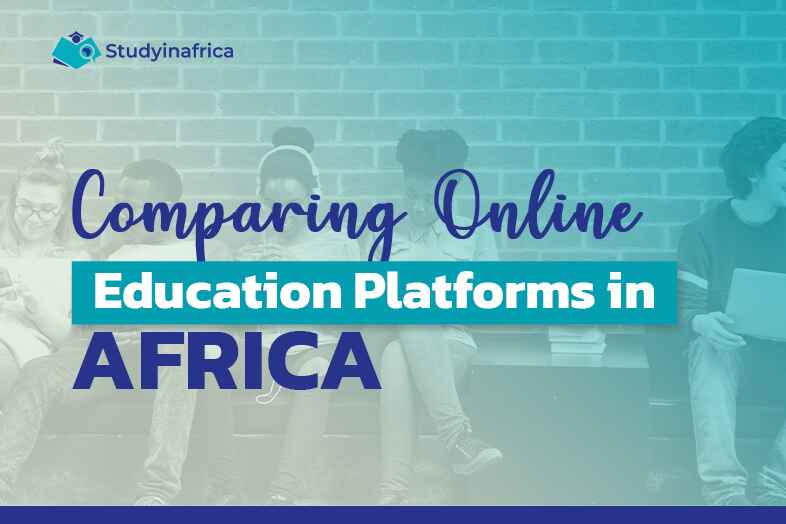
Blog Summary
Distance education has revolutionized how education is delivered, especially in Africa, where technology is bridging the gap between learners and institutions. With the rise of distance learning platforms, students no longer need to be physically present to earn their degrees. Whether pursuing advanced studies, learners across the continent are benefiting from innovative, tech-driven solutions. But how exactly is technology playing a role in this transformation? And what does this mean for the future of education in Africa? In this article, will explore how technology is shaping distance education in Africa, its advantages, challenges, and how it is opening opportunities for students across the continent.
Table of Contents
Introduction
Education is one of the most powerful tools for personal and societal development. In Africa, the need for accessible education is more crucial than ever. However, geographical barriers, economic limitations, and a lack of infrastructure have historically hindered students’ ability to pursue higher education. The rise of distance education in Africa, powered by technology, is beginning to change this narrative.
With the advent of digital platforms and e-learning, African students can now access quality education from the comfort of their homes. Studying a technical field from distance learning offers unprecedented flexibility and convenience. But what are the key drivers behind this shift?
Distance Education in Africa
Distance education refers to any learning that occurs remotely, where students and instructors are not physically present in the same location. In Africa, distance learning has become a significant solution for overcoming traditional barriers to education, such as location and resources.
Programs in distance learning allow students to gain knowledge and skills without attending campus full-time. African universities and global institutions are increasingly offering online degrees, allowing students to study in Africa or abroad from home.
The Rise of Technology in African Education
Technology is the backbone of the distance education movement in Africa. The spread of the internet, coupled with digital devices, made it easier for students to access education from anywhere. Institutions are leveraging platforms like Moodle, Google Classroom, and proprietary systems to facilitate learning.
Technology doesn’t just make education available — it makes it adaptable. From video lectures and real-time discussions to interactive quizzes, students are engaging in an experience that’s tailored to their needs and pace.
Importance of Distance Learning for Higher Studies
For many Africans, distance learning offers an alternative to traditional on-campus education. This is particularly relevant for postgraduate studies, where professionals need flexibility to balance work, study, and family commitments.
Distance learning is empowering more individuals to pursue advanced degrees, making it an important factor in Africa’s economic and healthcare development.
Accessibility and Connectivity: The Digital Divide
While the potential of distance education is vast, not all students have equal access to it. The digital divide — the gap between those with and without reliable internet access — remains a significant challenge in Africa. Many rural areas lack stable connectivity, and students may struggle to access online resources consistently.
However, initiatives by governments and international organizations are working to improve internet infrastructure across the continent, making online education more accessible.
Mobile Technology: A Game-Changer for African Students
Mobile phones have become the most accessible technological devices across Africa, and they are playing a crucial role in distance learning. With more students owning smartphones than computers, mobile-friendly learning platforms and apps are essential in enhancing education.
For students in remote areas or those without personal computers, mobile learning apps enable access to lectures, assignments, and peer discussions. The integration of mobile technology is helping to break down barriers and make education available to more students.
Government and Institutional Support for Digital Education
African governments and educational institutions are increasingly recognizing the importance of distance education. Several governments have launched initiatives aimed at improving internet infrastructure and providing digital devices to students. Additionally, partnerships with international bodies are helping to integrate modern technology into the education system.
Challenges in Distance Education in Africa
Despite the progress, there are challenges that need to be addressed in distance education in Africa. These include:
- Technological Barriers: Not all students have access to the internet or digital devices.
- Quality Control: Ensuring the quality of education in distance learning programs can be difficult.
- Student Engagement: Without face-to-face interactions, keeping students motivated and engaged can be a challenge.
Future Prospects: Technology as the Key to Education for All
As technology continues to evolve, the future of distance education in Africa looks promising. Virtual reality (VR) and artificial intelligence (AI) have the potential to further enhance learning experiences. Moreover, as internet access improves across the continent, more students will be able to pursue higher education through digital platforms.
Distance learning is not just a trend but a lasting shift in how education is delivered, ensuring that more students, regardless of location or background, can access quality education.
Conclusion
The role of technology in distance education in Africa cannot be overstated. From mobile learning to specialized programs, technology is bridging the gap between students and quality education. While challenges remain, the future is bright as technology continues to develop and more students gain access to the tools they need for success. As distance learning becomes the norm, Africa is poised to benefit from a more educated and empowered workforce, ready to tackle the continent’s unique challenges.
FAQ
What is distance education in Africa?
Distance education refers to learning that occurs remotely, using digital tools to deliver courses and programs without requiring students to attend in-person classes.
How does mobile technology support distance learning in Africa?
Mobile phones provide students with access to online learning platforms and materials, making education more accessible, especially for those in remote areas.
What challenges are faced in distance education in Africa?
Challenges include limited internet access, lack of digital devices, and ensuring the quality of online programs.
Are there distance learning programs for specialized fields?
Yes, many institutions offer specialized programs through distance learning, allowing professionals to advance their careers without needing to attend campus.
How is the digital divide impacting education in Africa?
The digital divide describes the disparity in access to technology and internet services, which limits some students’ ability to engage in distance learning.


